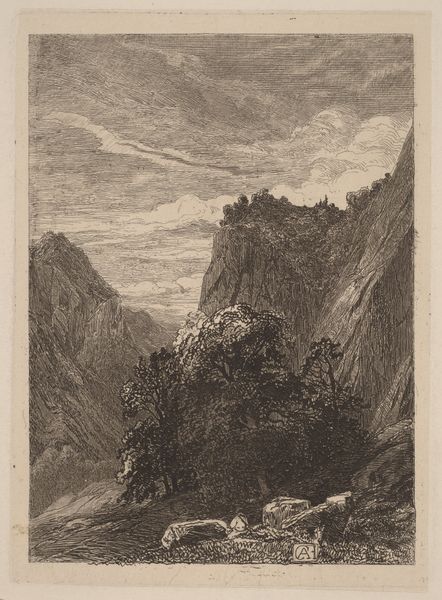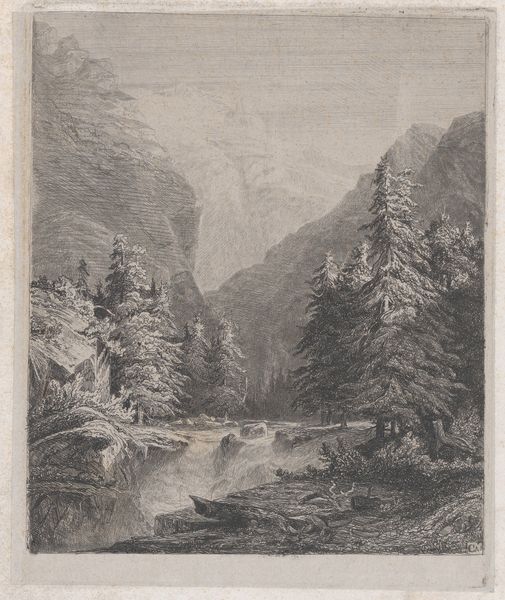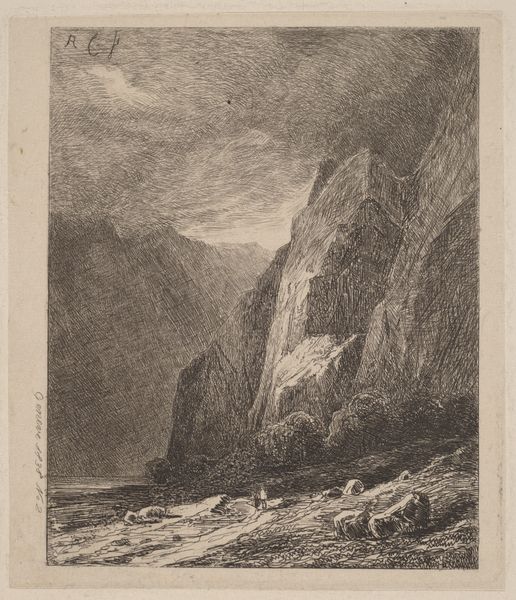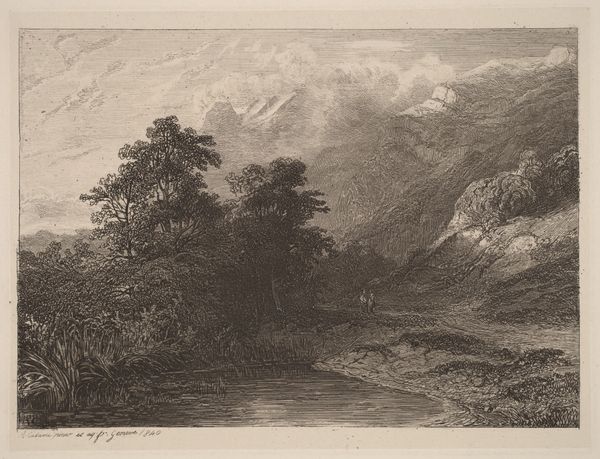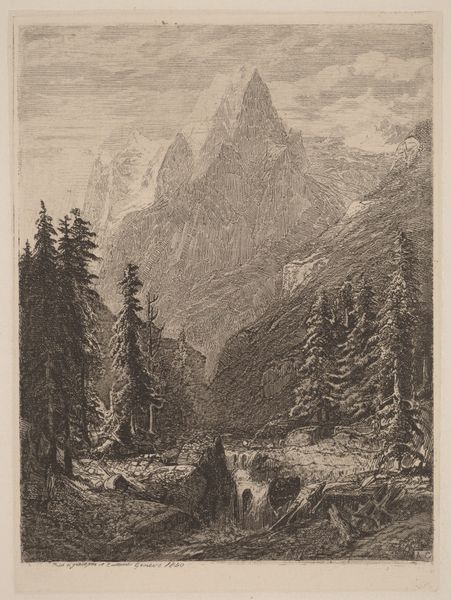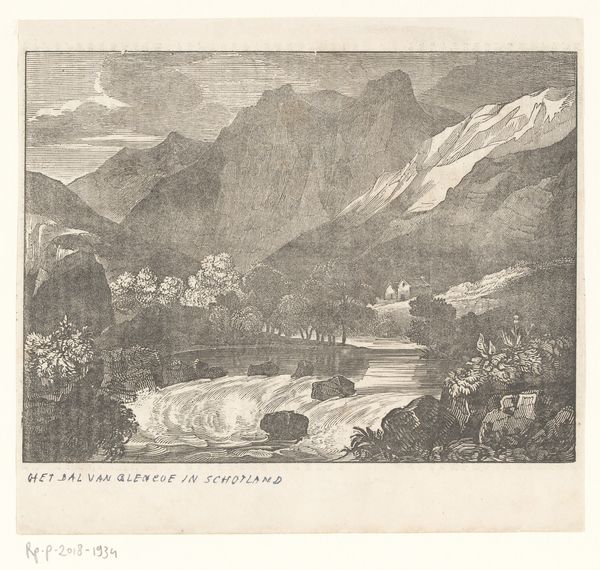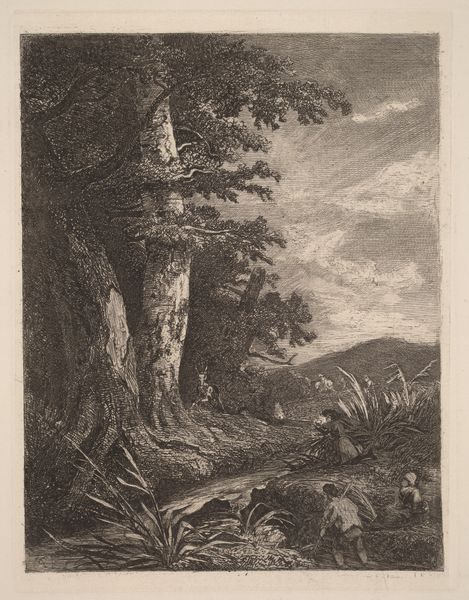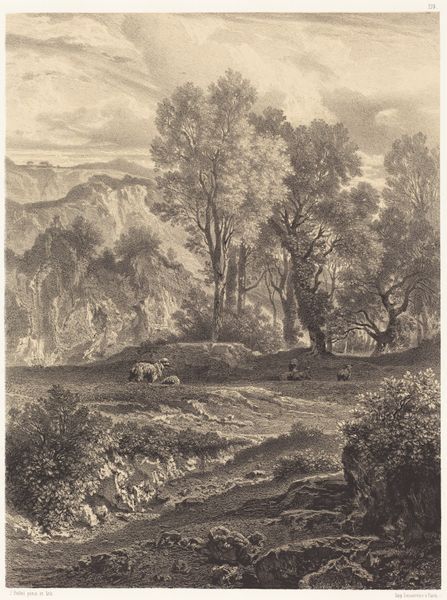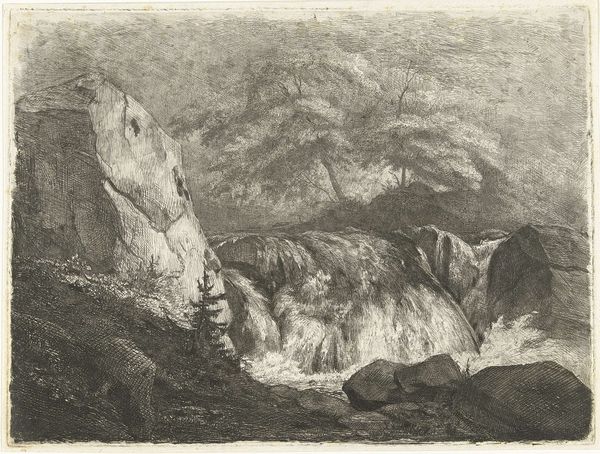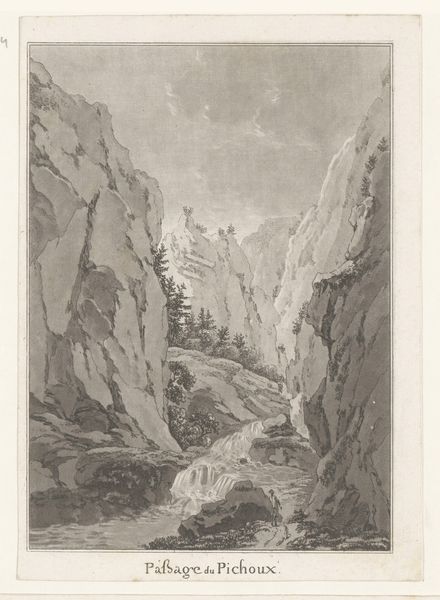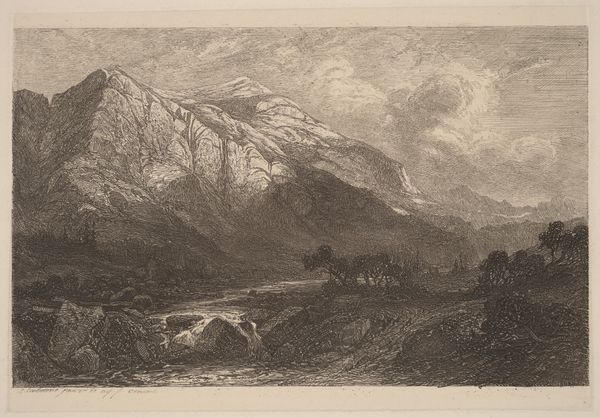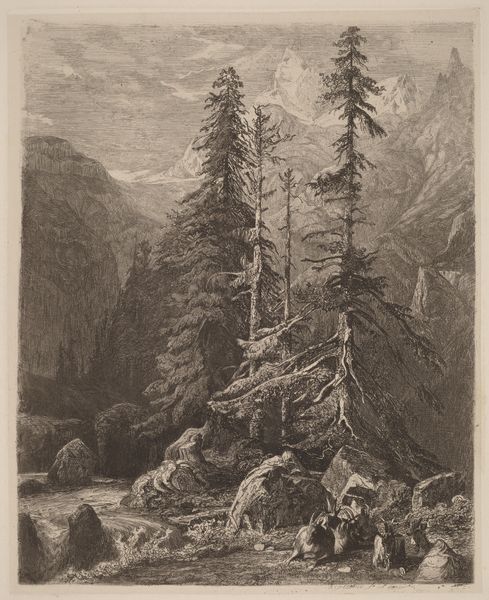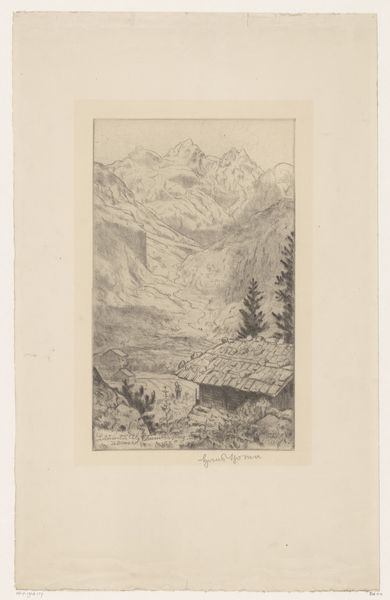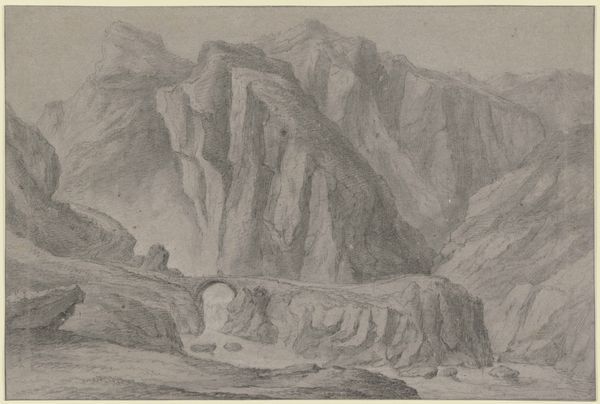
print, etching, engraving
# print
#
etching
#
landscape
#
romanticism
#
line
#
engraving
Dimensions: plate: 14.5 x 10.8 cm (5 11/16 x 4 1/4 in.) sheet: 15 x 11 cm (5 7/8 x 4 5/16 in.)
Copyright: National Gallery of Art: CC0 1.0
Curator: Today, we’re looking at an etching from 1838 entitled "Mountainous Landscape" by an anonymous artist. Editor: It's brooding. The dramatic peaks are impressive, and yet there's something somber in the almost monochrome depiction. It whispers of isolation, of the sublime turning a little bit melancholy. Curator: Yes, it certainly fits into the Romantic tradition. Landscapes in this era often mirrored the inner emotional world. Consider how the unyielding presence of the mountains, the dark, turbulent sky—the print’s aesthetic directly reflects the period’s fascination with nature’s power to inspire both awe and terror. The human element is dwarfed. Editor: Exactly. Look at the details though, the individual lines creating texture – the rocks, the water. I can imagine that whoever made this used meticulous, repetitive labor. The natural world in the image can then represent the experience of industrialized, mechanical work of the 19th Century as a place of escape and catharsis. It’s not just about awe; it’s about longing, about projecting anxieties onto nature. Curator: And note the political context as well: these landscapes were frequently consumed by an expanding middle class. Prints like these offered access to scenery most viewers would never physically witness. They served a cultural function in constructing a shared sense of national identity through representations of idealized landscapes. Editor: And even that is loaded, isn’t it? Whose ‘nation’ are we constructing? Which bodies have access and which don't? Nature, in its visual and material form, ends up standing in for so many layers of social power, wealth, and identity that a purely innocent appreciation seems impossible. Curator: Indeed, the politics of the gaze and the consumption of landscape imagery were and still are deeply embedded in societal power dynamics. Editor: So even in what might seem like a simple mountain view, there are countless dialogues about class, power, and identity being conveyed. Curator: Absolutely. Its apparent simplicity actually masks a wealth of commentary on the anxieties and aspirations of the period. Editor: It really makes you think about who gets to experience "nature," and how that shapes everything.
Comments
No comments
Be the first to comment and join the conversation on the ultimate creative platform.
